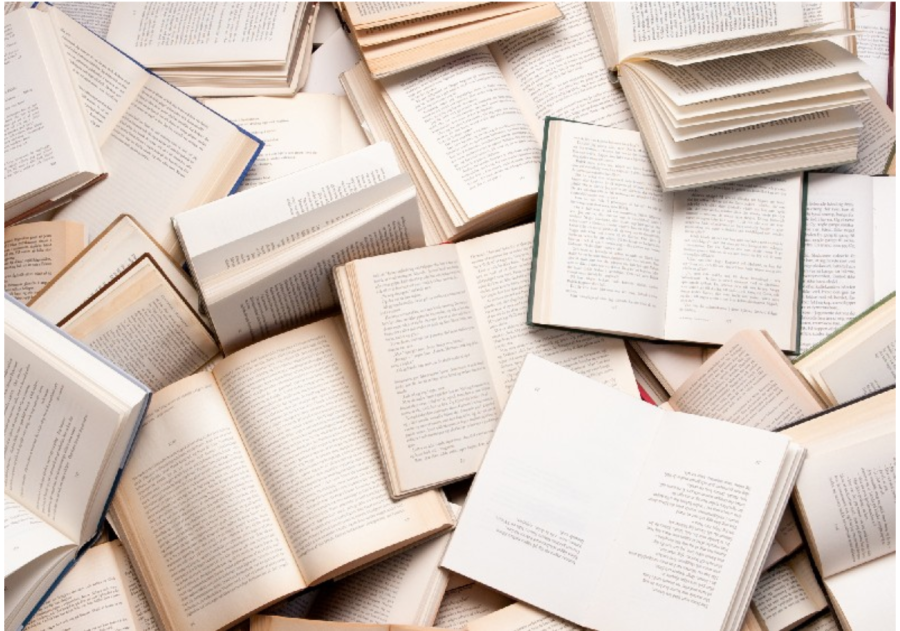Reading: Why Bother?
Most teenagers probably roll their eyes at the countless times adults tell them to pick up a book, but what would happen if they actually followed their advice? Many kids say they don’t like to read because they lack the time or energy, especially due to schoolwork and additional extracurriculars. However, every once in a while when students do get to read, they actually enjoy it.
Generally Friends Academy students enjoy reading for two main reasons: to relax and to learn. One student says she likes to read because “it gives [her] a break from [her] phone,” and she sometimes reads “if [she] can’t fall asleep” or “if there’s a lot on [her] mind.” Another student recalled enjoying The Great Gatsby because “almost every passage in the novel had a deeper meaning that could have been interpreted in many different ways,” demonstrating a genuine curiosity to learn. A third student says her love for reading gradually came to be partially due to the Friends Academy English curriculum, which showed her how engaging reading can be. In addition, she encourages the idea that learning is what makes reading fun. Other students prefer to read the news because it is engaging and helps them keep up with current events. While some students claim they generally don’t have enough time to read for pleasure, many do enjoy reading on their own, and we should nurture this natural curiosity and desire to learn.
When we actually allow ourselves time to read, we improve our psychological well being. For one, reading is an escape from the stressors of our real lives. Many Friends Academy students and teachers appreciate being able to live another life in the stories they read and enjoy the state of mind reading puts them in, especially as an escape from their phones. Secondly, reading complex writing challenges what we already think and know while forcing us to interpret different meanings of a text. One study asked participants to rate texts based on their “poeticness” and how much they had to rethink the text as they read. Results showed that the more complex the texts, the more brain scans measured activity in key areas of the brain. Professor Philip Davis, one of the study’s authors, explains that reading poems increases mental flexibility in the sense that the more complex texts are, the more readers have to rethink what specific phrases mean, while also accepting new meanings. This idea of acceptance ties into another major psychological aspect reading improves: empathy. Literary fiction increases our ability to feel empathy for others as proven in an experiment where participants were given an empathy test after just having read literary fiction and showed positive results. According to Keith Oatley, professor emeritus of cognitive psychology at the University of Toronto, fiction helps us as humans understand our social experiences. He says “A piece of fiction … [is] a piece of consciousness being passed from mind to mind. When you’re reading, you’re taking in a piece of consciousness that you make your own.” As you follow along the words written by an author, you temporarily identify with their very thoughts and feelings. Both deep thinking and empathy contribute to a generally more open mind, which can help you navigate social situations effectively and become more adaptable. Finally, reading nurtures creativity in the sense that fictional stories can often be ambiguous about certain aspects of the story whether it be a character’s background or a plot point, so readers need to be more accepting of this ambiguity, which is actually a major aspect of creativity.
While improving our mental state in various ways, reading various literary works can help us focus on specific areas of learning such as history. History teacher Mr. Brennan says “an understanding of historical literature is appreciating the flavours and settings of the past, evoking the sense of oneness with the people who lived before us.” Written works, fictional or not, allow us now in the present to look at other people’s stories on a very personal level. Whether these works are, according to Mr. Brennan, “tales that grandparents pass down, a love letter found under a floor board, [or] the myths and the legends that explain the hopes and fears of long forgotten people,” we as readers and historians can “explore and live the experiences” of many before us. These personal stories can teach us so much about just one specific person, which, then, can tell us so much about the time they lived in and act as a very important tool for learning.
You can ask yourself questions about the writer themself, the writer’s audience, and the intent of the writing. Understanding these few key facts can teach us much more about the values of the author, demographic, or time period, so I encourage everyone to take some time to fully understand a work of writing, whether it be a snippet of a historical source or a fictional novel. As English teacher Mr. Herceg says, literature is “intensely personal and much more private than other types of art and media,” allowing us as historians to connect to people of the past in a closer way than if we were to just memorize dates and facts.
Once you realize how much there is to learn from literature, you may wonder how you can truly dive into what you’re reading, going past surface level information like plot and setting. Answering basic questions about a written work is a good way to start understanding the work beneath the surface, but literature’s complexity allows readers to analyze much more. Since authors can “create whatever world they want without much restriction,” as Mr. Herceg notes, each world is a “unique universe” with its own characteristics. We can look at various literary techniques to understand each universe in depth. These techniques include, but aren’t limited to: similes, metaphors, alliteration, imagery, symbolism, irony, hyperboles, personification, repetition, parallelism, and many other terms you learn in English class. We see these techniques used all the time without realizing it, but actually taking the time to note and analyze them contributes to our deeper learning.
Ms. Lashley, an English teacher, further notes the “sonic elements… such as cadence, intonation, and rhythm” of literature that engage “rhythm and music,” which “don’t exist in the same way in visual art forms.” Whether we are aware of it or not, we experience the musicality of these elements all the time when we read through the specific language the author chooses. Again, it is up to us to actually try and understand the relevance of the author’s specific choices to the deeper meaning.
As an educator, Spanish teacher Posada recognizes that a lot of students don’t read because they see it as labor since we already read so much in school. He believes that teachers hold a responsibility to require literature that us students can connect to and teach it in a relatable way.
Personally, some of my favorite readings for school were those that I felt passionate about because so many of their themes were relevant to me or other ideas I had previously considered. I also see an increase of student participation when the reading is relatable, and these discussions end up being engaging and thoughtful.
Outside of school, students should seek readings they are interested in. Lots of kids are quick to say they hate reading, but the majority of reading they do is for school, which might not give everyone the chance to find a book they love. If you continue to say you hate reading without looking for something you would actually be interested in reading, you could miss out on a great story. Profe Posada encourages students to read anything, whether it be short or long, complex or simple, funny or serious, or new or old. Any type of reading matters as long as you are interested in it. “Once you start seeing different thoughts and taking in the emotions of the specific character,” Posada says, “you see different perspectives of the world.” Reading is eye opening in so many ways, and being closed off from that idea keeps us in a bubble.
If you feel like you have no time to read but really want to start incorporating it into your life, you can start by creating a reading list, setting a goal of a few pages per day, eliminating distractions by turning off your phone when you read, replacing other forms of entertainment with reading, and starting a book with some friends. Some Friends students and teachers even enjoy audiobooks and reading on their phones because of their convenience. There is so much interesting literature out there waiting to be discovered, so hopefully you take these tips to learn something new and enjoy a good book.







